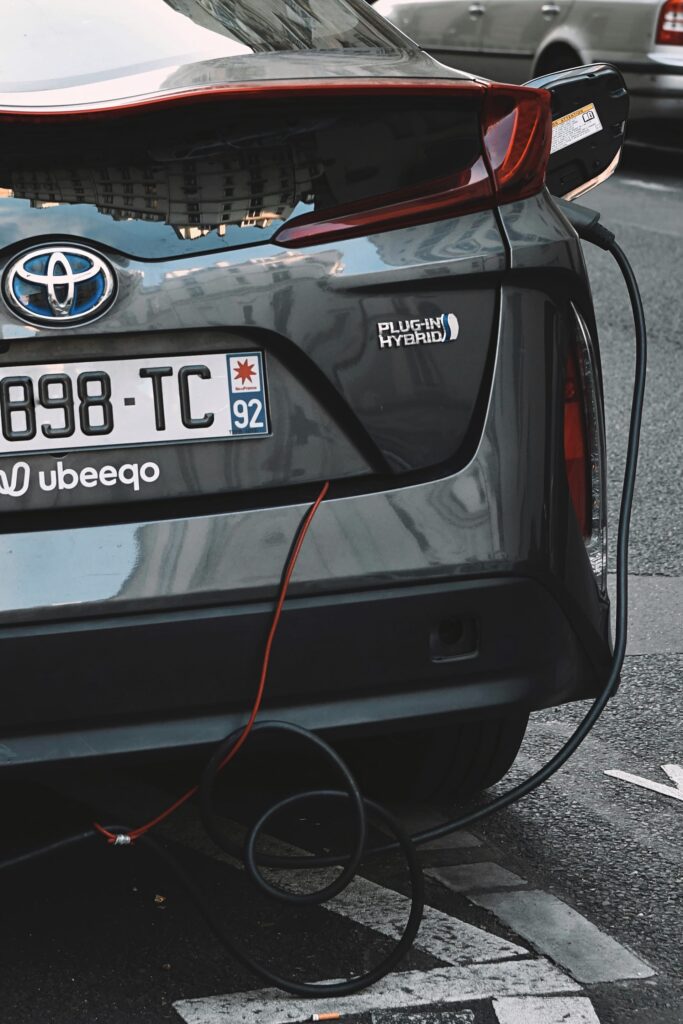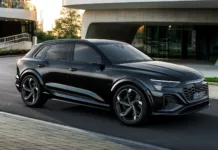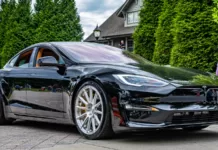Hybrid cars
The specialty of hybrids is that it combines at least one electric motor with a gasoline engine to power movement. The system recaptures energy through regenerative braking. Sometimes the electric motor does all the work, or at other times it is the gas engine. Or sometimes they work together. The result is that you have a car that is very efficient on fuel.
Only a decade ago, there were two hybrids available in the U.S. market. But today, due to increasing demand, there are up to 50 different hybrid models. Hybrids are popular as they are high-tech, cost-effective on fuel, and have a much cleaner carbon footprint than only gasoline powered cars. But is buying a hybrid really worth it? What are the cost savings of a hybrid, and how can they be calculated? Read on for the answers.
Hybrids may save you money from gas, but they come at a much higher price than regular gasoline cars. So the question is, does the additional cost cover-up? The answer depends on each vehicle. The price difference in some vehicles is high, and still, others are quite cheap for a hybrid. In order to calculate your total cost savings of a hybrid, you must take into consideration many of the prices of the vehicle vs. gasoline cars, the maintenance costs of hybrids, and the fuel costs as compared to gasoline-only cars and then estimate your savings.

The cost of a hybrid
Many types of hybrids, like SUVs, trucks, and plug-in hybrids, can cost at least $3000 to $13,000 more than gasoline-only versions of the same model. There are, however, a few cars, like the 2013 Mercedes-Benz S400 Hybrid sedan, that are less expensive than their gasoline counterparts. And the 2013 Lincoln MKZ hybrid and the 2013 Buick Regal Hybrid are the same as gasoline cars of the same model.
But both the 2013 Volkswagen Touareg Hybrid SUV and Audi Q5 Hybrid SUV cost more than $13,000 than gasoline cars of the same. And on the extreme end, the LS 600h L hybrid is $25,000 higher than the same gasoline-only Lexus LS 460L.
Additional benefits
But the plus side is that plug-in hybrids are eligible for the federal tax credit. The credit provides a dollar-for-dollar reduction in the owner’s tax bill. Most of them have a credit of $2500-$3750 or even higher, depending on the size of the vehicle battery. A list of vehicles that qualify for the tax credit is available on the Department of Energy’s website.
Moreover, some insurance companies like Farmers Insurance and Travelers Insurance charge a lower premium for hybrids as they believe that hybrids are less prone to accidents than non-hybrids. But this is not the case with all companies, so look around before you decide on an insurance cover.
With regard to battery life and repairs, most find hybrids of sufficient quality. Unlike fully electric vehicles that have quite a low battery life and high costs to replace, hybrid batteries last much longer and are much more sturdy. Hybrid vehicles also come with a warranty for 8-10 years (100,000-150,000 miles), so battery replacement should not be a worry or potential cost for at least the first 10-15years after purchase.
Overall maintenance of hybrid vehicles is not significantly higher than gasoline-powered cars. Hybrid-specific components do not need any extra maintenance. Maintenance is the same as gasoline cars, like regular tune-ups and engine maintenance every 5000-10,000 miles.
Another benefit of hybrid vehicles is that since their regenerative brake system wears mostly in mechanical brakes, so their brake pads last much longer than typical gasoline-powered cars.

Calculate the fuel cost
Always compare your hybrid with a non-hybrid version of the same model. For example, a Toyota RAV4 gasoline-powered car cost $25,950 in 2020, and a similar hybrid version cost $28 350. How long would it take to cover the difference of $2400 in fuel?
You can head over to fueleconomy.gov to find the annual fuel intake per car. RAV4 is 30mpg, and RAV4 hybrid is 40mpg. Then take, estimate the number of miles you would drive in a year and divide it by the mpg numbers.
For example, 20,000 miles divided by 40mpg is 500 gallons a year. Then multiply this sum by the price of a gallon. So 500 gallons into an average of $3 would cost $1500 per year for fuel. When you do the same for the gasoline car, it would cost $2000 per year. So there is an average saving of $500 per year. This means that it would take up to five years for you to pay off that premium on hybrid vehicles.
The price of gasoline varies in every state and every year. Take that into consideration, and with rising fuel prices, you will most probably be paying it off sooner than you think.
The fuel efficiency of Hybrid: The major Advantage
The sole purpose of a hybrid vehicle is to reduce the fuel consumption rate of vehicles and reduce the overall carbon footprint. Hybrids are very successful in this regard. But mileage varies with every car for a variety of reasons.
Hybrid vehicles are most efficient on fuel when they are at low speeds and in stop-and-go conditions. This is when the electric drive system does a lot of work. But at sustained highway speeds, the hybrid advantage reduces drastically.
Thus, even if the EPA rates each vehicle’s fuel consumption rates, it could easily be higher depending on the type of driving and other factors like hard braking, quick acceleration, cargo loads, and use of air-conditioning. So EPA fuel economy ratings should be seen as a minimal guide and never as a promise. Yet, it is undeniable that hybrids require much less fuel than only gasoline cars. The difference is more significant in some models more than others.

A typical gasoline-powered car is not very fuel efficient. Only about 25% of the fuel they burn is used to turn wheels. But a hybrid uses a smaller gas engine than a gasoline car and augments with an electric drive system to deliver extra power without using up too much gasoline. The car generates its own electricity to recharge its batteries through the gas engine, though plug-in hybrids are different. And as opposed to electric vehicles, there are problems with range. Hybrid will keep going as long as there is gasoline.
Summary
Overall the increased cost of buying hybrids is offset by reduced fuel consumption and discounted insurance rates. But it depends on your type of vehicle, your driving habits, and your insurer. It is estimated that a third of hybrid models in the market will earn back their price premiums in less than five years through their fuel savings.
So if you are looking for a practical and cost-effective car, hybrids are your best option. Spending extra to buy a hybrid is smart due to rising fuel prices. The higher the gas prices, the quicker and the bigger your cost benefits are in owning a hybrid. You also have to visit the gas station less. And moreover, while saving money, you can congratulate yourself on your green credentials and help to save the planet through reduced emissions.
Is high octane fuel really needed for your car? Read this article to find out!

















